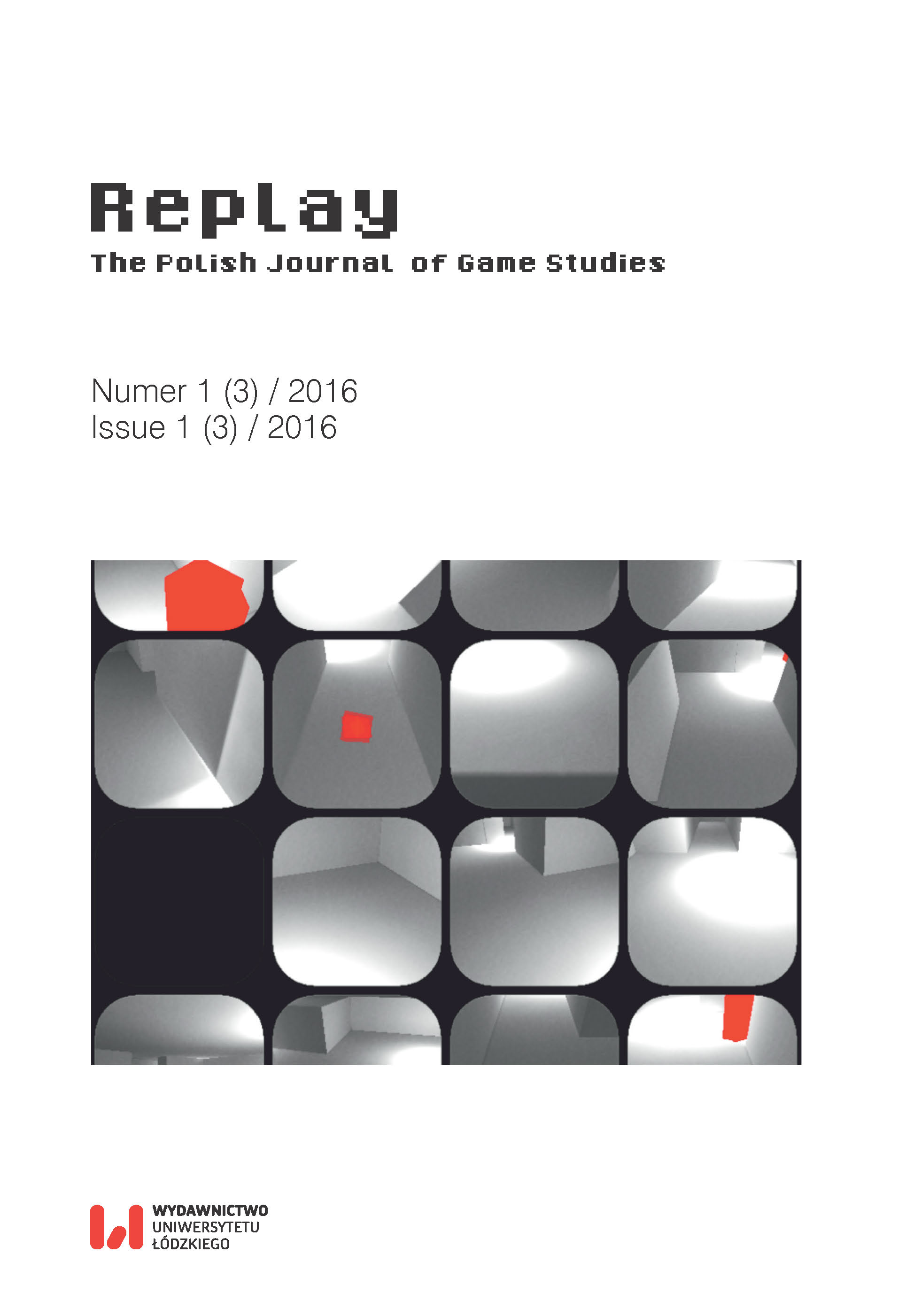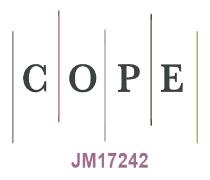An Experiential Comparative Tool for Board Games
DOI:
https://doi.org/10.18778/2391-8551.03.01Keywords:
board games, analysis, comparison, player experience, typologyAbstract
In the field of game studies, contemporary board games have until now remained relatively unexplored. The recent years have allowed us to witness the emergence of the occasional academic texts focusing on board games – such as Eurogames (Woods, 2012), Characteristics of Games (Elias et al. 2013), and most recently Game Play: Paratextuality in Contemporary Board Games (Booth, 2015). The mentioned authors all explore board games from diverse viewpoints but none of these authors present a viable and practical analytical tool to allow us to examine and differentiate one board game from another. In this vein, this paper seeks to present an analytical comparative tool intended specifically for board games. The tool builds upon previous works (Aarseth et al. 2003; Elias et al. 2012; and Woods 2012) to show how four categories – rules, luck, interaction and theme – can interact on different levels to generate diverse gameplay experiences. Such a tool allows to score games objectively and separately in each of the categories to create a combined gameplay experience profile for each board game. Following this, the paper proceeds to present numerous practical examples of contemporary board games and how it can be used from a design perspective and an analytical perspective alike.
References
Aarseth, E., Smedstad, S., & Sunnana, L. (2003). A Multi-Dimensional Typology of Games. Utrecht: DiGRA.
Google Scholar
Boardgamegeek.com. (2015). BoardGameGeek | Gaming Unplugged Since 2000. Retrieved 1 July 2015, from http://www.boardgamegeek.com
Google Scholar
Booth, P. (2015). Game Play: Paratextuality in Contemporary Board Games. New York: Bloomsbury.
Google Scholar
Caillois, R. (1961). Man, Play and Games. Urbana and Chicago: Univeristy of Illinois Press.
Google Scholar
Calleja, G. (2011). In-Game. Cambridge, MA: The MIT Press.
Google Scholar
DOI: https://doi.org/10.7551/mitpress/8429.001.0001
Costikyan, G. (2008). Uncertainty in Games. Cambridge, MA: The MIT Press.
Google Scholar
Costikyan, G., & Davidson, D. (2011). Tabletop. Pittsburgh, PA: ETC Press.
Google Scholar
Elias, G., Garfield, R., & Gutschera, K. (2012). Characteristics of Games. Cambridge, MA: MIT Press.
Google Scholar
Elverdam, C., & Aarseth, E. (2007). Game Classification and Game Design: Construction Through Critical Analysis. Games and Culture, 2(1), 3–22. doi:10.1177/1555412006286892
Google Scholar
DOI: https://doi.org/10.1177/1555412006286892
Garfield, R. (2011). Luck in Games. Presentation, NYU Game Series.
Google Scholar
Knizia, R. (1999). Dice Games Properly Explained. Tadworth, Surrey: Right Way.
Google Scholar
Murray, J. H. (1998). Hamlet on the Holodeck: The Future of Narrative in Cyberspace. Cambridge, MA: MIT Press.
Google Scholar
Parlett, D. (1999). The Oxford History of Board Games. Oxford: Oxford University Press.
Google Scholar
Smith, Q., & Dean, P. (2011). It’s War: Player Interaction. Shut Up & Sit Down. Retrieved 1 July 2015, from http://www.shutupandsitdown.com/blog/post/its-warplayer-interaction/
Google Scholar
Woods, S. (2012). Eurogames. Jefferson, N.C.: McFarland & Co.
Google Scholar
Boelinger, Ch. (2012). Archipelago. [Board Game], Asmodee.
Google Scholar
Borg, R. (2006). Commands and Colors: Ancients. [Board Game], GMT Games.
Google Scholar
Calhamer, A. B. (1959). Diplomacy. [Board Game], Avalon Hill.
Google Scholar
Chircop, D. & Massa, Y. (2015). …and then, we held hands. [Board Game], LudiCreations.
Google Scholar
Chvátil, V. (2007). Galaxy Trucker. [Board Game], Czech Games Edition.
Google Scholar
Chvátil, V. (2011). Mage Knight Board Game. [Board Game], WizKids Games.
Google Scholar
Darrow, C., Maggie. (1935). Monopoly. [Board Game], Parker Brothers.
Google Scholar
Dorn, R. (2014). Istanbul. [Board Game], Pegasus Spiele.
Google Scholar
Eskridge, D. (2009). The Resistance. [Board Game], Indie Boards and Cards.
Google Scholar
Feld, S. (2011). The Castles of Burgundy. [Board Game], Alea.
Google Scholar
Hostettler, U. (1991). Tichu. [Board Game], ABACUSSPIELE.
Google Scholar
Inman, M., Lee, E., & Small, Sh. (2015). Exploding Kittens. [Board Game], self-published.
Google Scholar
Knizia, R. (1998). Through the Desert. [Board Game], Fantasy Flight Games.
Google Scholar
Konieczka, C. (2008). Battlestar Galactica. [Board Game], Fantasy Flight Games.
Google Scholar
Lacerda, V. (2012). CO2. [Board Game], Giochix.it.
Google Scholar
Lambert, R., Rilstone, A., Wallis, J. (1993). Once Upon a Time: The Storytelling Card Game. [Board Game], Atlas Games.
Google Scholar
Leacock, M. (2007). Pandemic. [Board Game], Z-Man Games.
Google Scholar
Pratt, A. (1949). Clue. [Board Game], Leeds, Unknown.
Google Scholar
Rosenberg, U. (2007). Agricola. [Board Game], Lookout Games.
Google Scholar
Ross, S. (2010). Haggis. [Board Game], Indie Boards and Cards.
Google Scholar
Roubira, J.-L. (2008). Dixit. [Board Game], Libellund.
Google Scholar
Teuber, C. (1995). Die Siedler von Catan. [Board Game], KOSMOS.
Google Scholar
Ushan, A. (2014). Spyfall. [Board Game], Cryptozoic Entertainment.
Google Scholar
Wilson, K. (2005). Descent: Journeys in the Dark. [Board Game], Fantasy Flight Games.
Google Scholar










